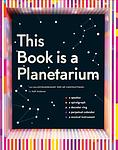Nathalie Sarraute
Nathalie Sarraute (July 18, 1900 – October 19, 1999) was a Russian-born French lawyer and writer. She is considered one of the leading figures in the Nouveau Roman (New Novel) movement, which sought to revolutionize narrative techniques by focusing on the inner lives of characters and eschewing traditional plot and character development. Sarraute's work is known for its psychological depth and stylistic innovation.
Books
This list of books are ONLY the books that have been ranked on the lists that are aggregated on this site. This is not a comprehensive list of all books by this author.
-
1. The Planetarium
In "The Planetarium," the narrative delves into the complex web of human relationships and the subtle power dynamics within a Parisian family. The story unfolds through a series of internal monologues and fragmented conversations, focusing on a young writer who seeks recognition and support from his self-absorbed aunt. The aunt, preoccupied with her own social status and the maintenance of her bourgeois lifestyle, becomes the center of a psychological exploration of pretense, manipulation, and the struggle for authenticity in a world governed by social appearances. The novel dissects the intricacies of familial expectations and the individual's quest for identity amidst the pressures of societal conformity.
-
2. Tropisms
"Tropisms" is a collection of 24 short sketches that delve into the hidden undercurrents of human interactions and the subtle, often unnoticed movements of thought and feeling. The book, often considered a precursor to the nouveau roman literary movement, explores the mundane aspects of everyday life and the psychological complexities beneath them, using a unique, impressionistic style. The term 'tropisms' refers to the instinctive reactions of humans, similar to the biological responses of plants to stimuli.
-
3. Childhood
"Childhood" is a memoir that delves into the fragmented memories of the author's early years, exploring the complexities of growing up and the formation of identity. Through a series of vignettes, the narrative captures the nuanced emotions and experiences of a young girl navigating her way through the challenges of family dynamics, societal expectations, and self-discovery. The author employs an innovative literary style, characterized by introspection and a stream-of-consciousness approach, to reflect on the elusive nature of memory and the ways in which our childhood experiences shape who we become.
-
4. Portrait Of A Man Unknown
The novel delves into the psychological intricacies of its characters, focusing on the inner life and personal crises of a seemingly ordinary man whose identity remains elusive. Through a series of fragmented narratives and interior monologues, the book explores themes of self-awareness, the nature of personal relationships, and the struggle for authenticity in a world where social roles and expectations often obscure true identity. The narrative's experimental form challenges traditional storytelling, reflecting the complexities of human consciousness and the difficulty of truly knowing oneself or another person.
-
5. The Use Of Speech
"The Use of Speech" is an avant-garde exploration of the subtleties and complexities of human communication, delving into the nuances of spoken interaction. Through a series of vignettes, the narrative dissects the layers of meaning, intention, and emotion that underlie everyday conversations. The book challenges traditional narrative structure and character development, focusing instead on the intricate dance of dialogue and the unspoken undercurrents that shape our social exchanges. With a keen psychological insight, it reveals the depth and ambiguity of language, exposing the ways in which words can both connect and alienate individuals in their quest for understanding and expression.




